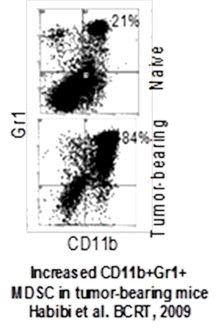Biomedical
Novel AIT Therapy for the Treatment of Breast Cancer
One of the main obstacles in the immunotherapy of breast cancer include tumor-induced elevation of myeloid-derived suppressor cells (MDSC) that often make the treatment of breast cancer difficult by suppressing tumor-reactive T cells. The major challenge in biological therapy of cancer is how to induce long-lasting memory T cells that are refractory to MDSC and can prevent tumor recurrence. Additionally, conventional therapies such as radiation can alter a patient’s immune system and results in failure of adoptive T cell immunotherapy (AIT). Therefore, a need exists for a first-line immunotherapy that can obtain T cells from cancer patients and expand them ex vivo in the absence of a tumor or its antigens, and use these cells to overcome the detrimental effects of MDSC in the treatment of breast cancer.
The technology
Researchers at Virginia Commonwealth University have developed a new AIT breast cancer treatment that should also be effective in preventing metastasis and subsequent primary tumor growth. This non-invasive, ex vivo protocol involves using bryostatin 1 and ionomycin followed by sequential common gamma chain cytokines that can selectively expand tumor-reactive T cells isolated from tumor-draining lymph nodes, and can drive T cell differentiation towards memory phenotypes that are refractory to MDSC. Because of this, the protocol lends itself not only to the treatment of breast cancer, but also to the treatment of other cancers or diseases in which MDSC or other inhibitory agents prevent effective treatment. Additionally, the protocol utilizes a patient’s own T cells, which obviates risk of toxicity and an autoimmune response. Finally, the use of this treatment does not preclude the use of other cancer therapies.

